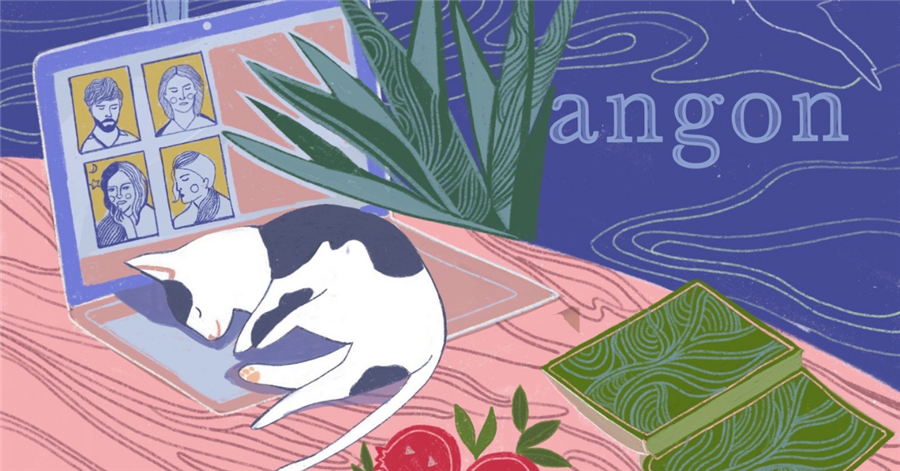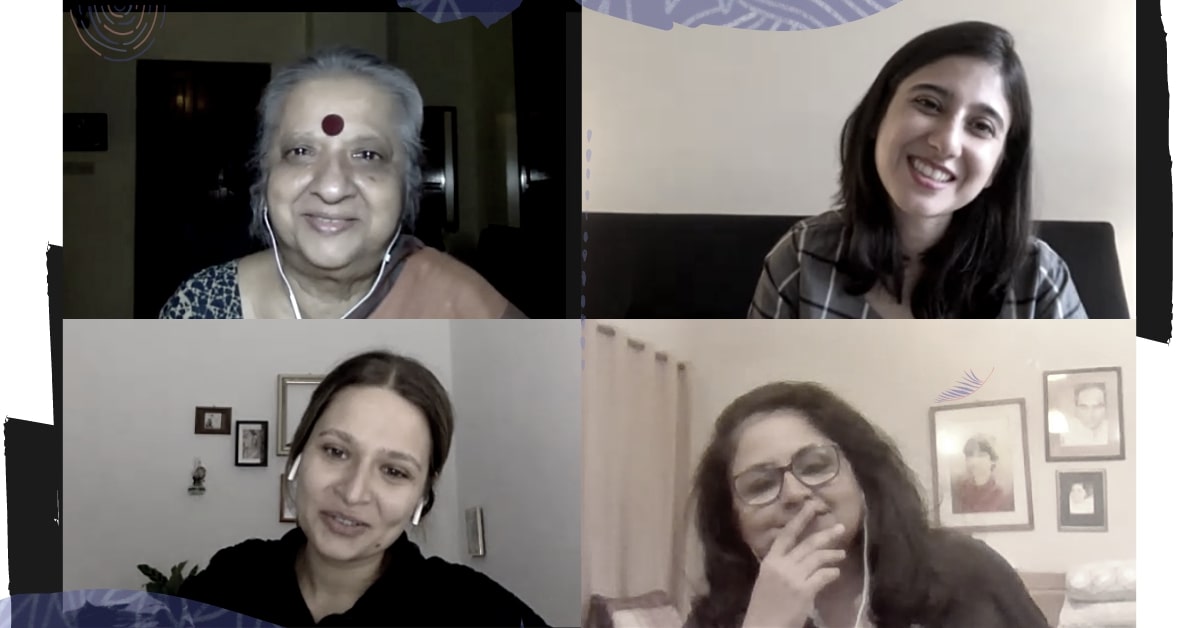- Home
- News
- New partnership ANGON creates podcasts to connect artists in a time of pandemic
New partnership ANGON creates podcasts to connect artists in a time of pandemic
18 November 2020

Illustration © DhakaYeah Illustration © DhakaYeah
Artists and producers in Bangladesh and Pakistan have forged links to create a series of podcasts – as part of Transforming Narratives’ Digital Collaborations Programme – to foster dialogue between individuals from the art and cultural communities in South Asia and Birmingham.
The partnership is called ANGON and in October organisers conducted a series of Q&As with creatives including Bangladeshi singer and journalist Elita Karim and Pakistani documentary filmmaker Haya Fatima Iqbal, as a basis for the podcasts to be launched on Tuesday 1 December.
ANGON means an enclosed open space within the house where families and friends come together.
“It phonetically bridges the words Ongon is Bangla [অঙ্গন] and Aangan [آنگن] in Urdu. This resonates with our idea of creating a space to facilitate dialogue.”
Here the team talks to us about the project:
TN: What are the aims of your project?
A: ANGON envisions opening up a non-heavy but thoughtful dialogue without any boundaries surrounding hierarchies, genders or religions.
The ANGON podcasts aim to collect and produce knowledge on narratives that different generations and individuals have on the current pandemic.
We also hope a broader audience will understand the perspectives of a heterogeneous group of people and their countries or places of origin.
The podcasts will open up topics that go beyond borders and look at what is unifying and connecting artists, cultural practitioners, and intellectuals across borders within the same discipline such as writers, performance artists, designers, social activists, theatre makers, journalists and linguists.
We will facilitate discussion on current topics, challenges, and possible future scenarios in a warm and open atmosphere as well as provide a platform for young artists and practitioners, cultural activists, and all those who want to get involved.
Beyond this project, the partners would like to connect artists from Birmingham, Pakistan, and Bangladesh to explore new projects and opportunities.
TN: What are the topics to be covered in the podcasts?
A:
● Episode 1 (1 Dec) Across the Divides with Khushi Kabir from Bangladesh and Anam Zakaria from Pakistan
● Episode 2 (3 Dec) Being South Asian: Voicing Stereotypes with Elita Karim from Bangladesh and Haya Fatima Iqbal from Pakistan
● Episode 3 (5 Dec) Finding one’s Own Rhythm and identity in movement and its perception across regions with Suhaee Abro (Pakistan), Seema Nusrat Amin (Bangladesh), Sudeshna Swayamprabha (Bangladesh)
● Episode 4 (7 Dec) South Asian feminism with Samya Arif from Pakistan and Istela from Bangladesh Identifying with no nation but being a Bideshi/Pardesi (foreigner) at all places at all times
● Episode 5 (9 Dec) Being Bideshi/Pardesi (foreigner) at all places at all times with - Aftab Rahman and Mukhtar Dar

Image: Clockwise from top left: Khushi Kabir from Bangladesh and Anam Zakaria from Pakistan with hosts and moderators Samira Syed and Masuma Halai Khwaja discuss the topic Across the Divides.
TN: How will this fulfil the Transforming Narratives Digital Collaborations Programme brief?
A: Up until now, millennials have not witnessed anything radical on a global scale, but the COVID-19 pandemic has changed that. The Transforming Narratives project gives us the opportunity for introspection and revelation. Being global citizens means we are all connected, however, for the past decade or so, there has been a common message that technology separates us, but during this pandemic, it is clear that digital solutions bridge the gap.
As there are quite limited shared platforms between Pakistan and Bangladesh, ANGON wants to provide one to start a creative initiative with open-minded artists and intellectuals.
ANGON aspires to avoid dwelling on what separates our communities and instead, focus on the present, building connections for a future of better understanding and solidarity across borders.
TN: What does your project involve and what techniques and technologies will you be using?
A: The ANGON video and audio podcast will be published on Facebook and YouTube throughout the autumn of 2020.
Choosing a social media platform to make content available can be challenging when targeting audiences in lower-income regions. We wanted to make sure that the platform would be available to as wide an audience as possible taking into account education, socio-economic status, and technical capabilities.
Facebook felt like the right option given their presence in South Asia. Many users, regardless of their device (mobile or computer) have access to Facebook. Furthermore, Facebook uses well connected content delivery networks that will ensure our podcast can be consumed on any internet connection whether it is 3G, 4G, or broadband.
TN: Who is involved with the project and what collaborations have you built with other artists/organisations and in which locations?
A: Host and moderator Samira Syed from Dhaka, who has a background in cultural studies and is currently assisting the director at Goethe-Institut Bangladesh on cultural programming.
She has teamed up with co-host and moderator Masuma Halai Khwaja from Karachi who is an artist, curator, author and art educator whose work has been exhibited at four art biennials and various art fairs including the Karachi Biennale.
They have in turn teamed up with I AM KARACHI (IAK), led by Ambareen Thompson, to provide ANGON with expertise in civil society engagement and network strengths. The organisation has created platforms for peace building through arts, culture, sports, and dialogues as well as a music mentorship programme, an international public art festival, self-defence training programme and the IAK Talks.
Nafis Ahmed from Dhaka (who is also producing his own digital collaborations project BLKBX Dystopia) is providing his technical expertise and profound conceptual thoughts, leading ANGON’s interactive digital engagements.
Masuma and Nafis met for the first time in Birmingham through different research undertakings as part of a previous Transforming Narratives exchange.
← Read other news articles